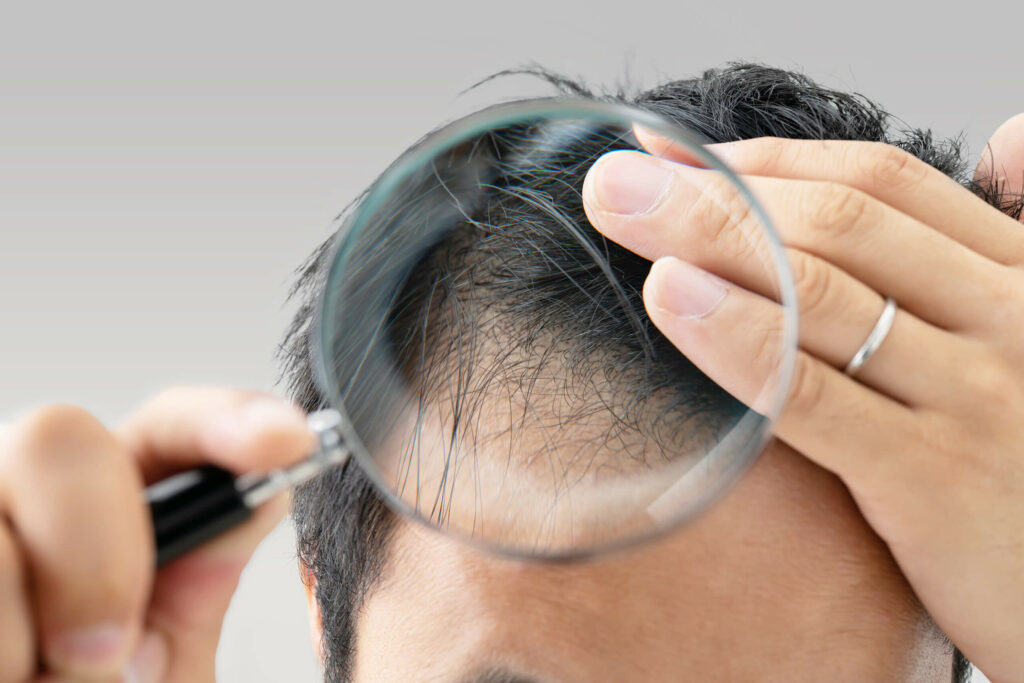Worried that your go-to styling mousse might be contributing to hair loss? While mousse helps achieve volume and hold, concerns about its impact on hair health are common.
Does Mousse Cause Hair Loss? In this article, we’ll examine whether mousse can cause hair loss, explore expert insights, and share safe styling tips.
You’ll learn how to use mousse without damaging your hair and what alternatives might be better for sensitive scalps.
Our goal is to give you factual, trustworthy information so you can style smart and stay confident.
What Is Hair Mousse?
Hair mousse is a lightweight, foamy styling product designed to enhance volume, define curls, and provide hold without the stiffness of gels or hairsprays.

It’s typically applied to damp hair and activated through blow-drying or air-drying.
Common Ingredients in Hair Mousse:
- Polymers (to create a hold)
- Alcohol (for quick drying)
- Conditioning agents (for smoothness)
- Fragrances and preservatives
Benefits of Using Mousse:
- Adds volume and bounce, especially to fine or limp hair
- Enhances curl definition
- Offers flexible hold with a soft finish
- Doesn’t weigh hair down like heavier creams or gels
Can Mousse Cause Hair Loss?
Direct vs. Indirect Effects
There’s no clinical evidence showing that mousse directly causes hair loss. However, certain factors related to its use can indirectly contribute to hair weakening or breakage.
Indirect causes may include:
- Dryness from alcohols in some formulations
- Scalp irritation from harsh fragrances or preservatives
- Product buildup, which can clog hair follicles if not washed out regularly
Ingredients to Watch Out For
While not inherently harmful in small amounts, repeated exposure to these ingredients may impact scalp health over time:
- Alcohol denat: Dries out hair and scalp, increasing brittleness.
- Sulfates and parabens: Can irritate sensitive scalps or exacerbate existing conditions.
- Fragrances: May cause allergic reactions or inflammation in rare cases.
Product Buildup and Scalp Health
Failing to properly cleanse the scalp can lead to product buildup. This may:
- Block follicles, leading to weaker hair growth
- Increase dandruff or itchiness
- Create a breeding ground for bacteria
Pro Tip: Use a clarifying shampoo once a week to remove buildup and restore scalp balance.
Expert Opinions
According to Dr. Rana Irfan, a board-certified trichologist:
“Mousse itself isn’t the enemy. The real issue lies in how it’s used and how well users maintain their scalp health.”
Hairstylist Insight from Nida Ali (Karachi):
“Most clients see damage from mousse when they overuse it or pair it with heat tools without protection. Choosing a quality product and using it sparingly makes all the difference.”

Best Practices for Using Mousse Safely
Choosing the Right Product
- Look for alcohol-free or low-alcohol formulas.
- Select mousses with added moisturizing agents like glycerin, argan oil, or keratin.
- Prefer products labeled as non-comedogenic (won’t clog follicles).
Application Tips
- Always apply to clean, damp hair.
- Use a small amount (golf-ball size for medium-length hair).
- Distribute evenly with a wide-tooth comb or fingers.
- Avoid applying directly to the scalp.
Maintain a Healthy Hair Routine
- Wash hair 2–3 times a week to prevent buildup.
- Use a sulfate-free shampoo and a hydrating conditioner.
- Apply a heat protectant before blow-drying or styling with hot tools.
Alternative Styling Products
Natural Alternatives
- Aloe Vera Gel: Soothes the scalp and adds light hold.
- Flaxseed Gel: Great for curl definition with nourishing properties.
- Shea Butter: Provides moisture and light styling control.
Comparing Mousse with Other Products
| Product Type | Hold Level | Moisture | Best For |
|---|---|---|---|
| Mousse | Light-Medium | Low | Volume, curls |
| Gel | Medium-Strong | Low | Structured styles |
| Cream | Light | High | Frizz control, hydration |

FAQs
Does mousse cause hair thinning?
Not directly. However, if mousse dries your hair or causes buildup that leads to scalp irritation, it can accelerate breakage or temporary thinning.
Can I use mousse every day?
Yes, but use sparingly and wash hair regularly. Daily use without proper cleansing can cause buildup.
Is mousse suitable for all hair types?
Most mousses are designed for fine to medium hair. Those with coarse or dry hair should choose formulas with added moisture.
Can mousse be used on color-treated hair?
Yes—just ensure it’s labeled color-safe and doesn’t contain drying alcohols.
Conclusion
So, does mousse cause hair loss? Not directly. The real concern lies in how it’s used and whether the scalp and hair are cared for properly.
Choose the right product, avoid overuse, and stick to a healthy hair care routine—and you can style with mousse safely.
Worried about hair loss or product damage?
Book a personalized consultation with Dr. Rana Irfan in Islamabad today to get expert advice, scalp analysis, and safe styling solutions tailored to your hair type and needs.
